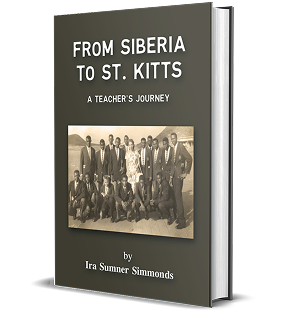Books are powerful tools for preserving memory, sharing experiences, and shaping collective identity. In the Caribbean, where cultural exchange and migration have defined so much of life, storytelling becomes even more important. Among the growing collection of books by Caribbean authors, From Siberia to St. Kitts stands out for turning one teacher’s personal history into a lasting legacy. Through the life of Madame Irina Katzen, author Ira Simmonds not only honors an educator but also contributes to the preservation of regional memory.
The Value of Caribbean Voices in Literature
Caribbean literature plays a vital role in recording voices that might otherwise go unheard. Teachers, caregivers, artisans, and quiet contributors have all left their mark on island life. Yet, their stories are often undocumented. That is what makes biographies like From Siberia to St. Kitts so valuable. They represent lived experiences that help complete the picture of Caribbean history.
Books by Caribbean authors offer much more than personal reflection. They give insight into broader themes of identity, resilience, and community service. These themes are present in the story of Madame Katzen, a Russian-born teacher who brought her passion for languages to a classroom in St. Kitts and helped shape generations of students.
Turning Biography Into Legacy
Madame Katzen lived through revolution, exile, and cultural shifts. She was educated in Paris, taught in Shanghai and Chile, and eventually settled in the Caribbean. Her global experiences shaped her teaching philosophy—one rooted in discipline, structure, and consistency. In a modest classroom in St. Kitts, she passed on her knowledge of French and Spanish to students who, in many cases, had never left the island.
Although she never sought recognition, her former students remember her with respect. One of those students, Ira Simmonds, later became an educator himself. Reflecting on how her teaching shaped his life, he took on the task of researching and writing her biography. Through his efforts, her story moved from memory to literature, and her legacy was preserved for readers both inside and outside the Caribbean.
His work highlights how books written by Caribbean authors can help ensure that unsung educators and contributors are not forgotten.
A Personal Connection That Enriches the Narrative
Unlike many biographies written from a distance, From Siberia to St. Kitts is based on a close, personal connection. Simmonds was not only a former student—he was someone who carried Madame Katzen’s lessons into his own career in education. His writing is shaped by gratitude, respect, and a sense of duty to honor her life.
He conducted interviews with former students, gathered documents, and worked closely with Madame Katzen’s family to ensure her story was accurate and meaningful. That effort gives the book a depth not always found in biographies. The personal investment turns this work into more than a written tribute—it becomes a public memory of a woman who gave her best in every lesson.
Among books by Caribbean authors, it is rare to find such careful attention to both emotional and historical accuracy.
Cultural Influence in the Caribbean Context
Madame Katzen’s influence reached beyond academics. Her classroom extended into her home, Chalet La Serena, where students were encouraged to use language in real-world settings. She offered them music, discussion, and language clubs—insisting they speak only French or Spanish. These informal lessons were rooted in her belief that learning was not limited to school hours.
Her story also reflects the cultural layering that defines Caribbean life. Though not born in the region, she contributed meaningfully to it. Her European education, global experience, and personal discipline added to the educational traditions of St. Kitts. This blending of perspectives is common in the region but rarely documented with such clarity.
Books like this show how individuals from different backgrounds can leave lasting marks on Caribbean communities. These contributions are often best remembered through books by Caribbean authors who understand the nuances of life in the region.
Broader Literary Significance
While many biographies focus on political leaders or public figures, this book centers on an educator whose greatest achievements happened quietly. Madame Katzen’s work didn’t involve headlines or large audiences. It happened in small classrooms through one-on-one correction, encouragement, and high expectations.
This kind of influence often goes unrecorded. Yet, it is precisely this kind of story that deserves space in regional literature. Her methods—strict, immersive, and culturally rich—prepared students not just to speak new languages but to see themselves differently.
The book adds something rare to the collection of books by Caribbean authors: an honest, respectful account of a teacher whose influence was quiet but lasting.
Madame Katzen’s Story: Personal Gratitude, National Memory
In telling Madame Katzen’s story, From Siberia to St. Kitts moves beyond simple biography. It becomes a tool for preserving memory, honoring an educator, and contributing to the body of literature that gives voice to the Caribbean experience. Through the eyes of a grateful student, readers gain insight into a kind of influence that cannot be measured in public awards but lives on through every life touched.
Among books written by Caribbean authors, this work holds a special place. It reminds us of the value of recognizing those who served others with purpose and dignity. It is a quiet but important addition to the effort of keeping Caribbean history whole—one story at a time.
Help preserve the stories that shaped generations.
Read From Siberia to St. Kitts—a powerful example of how books by Caribbean authors turn personal memory into public legacy.

